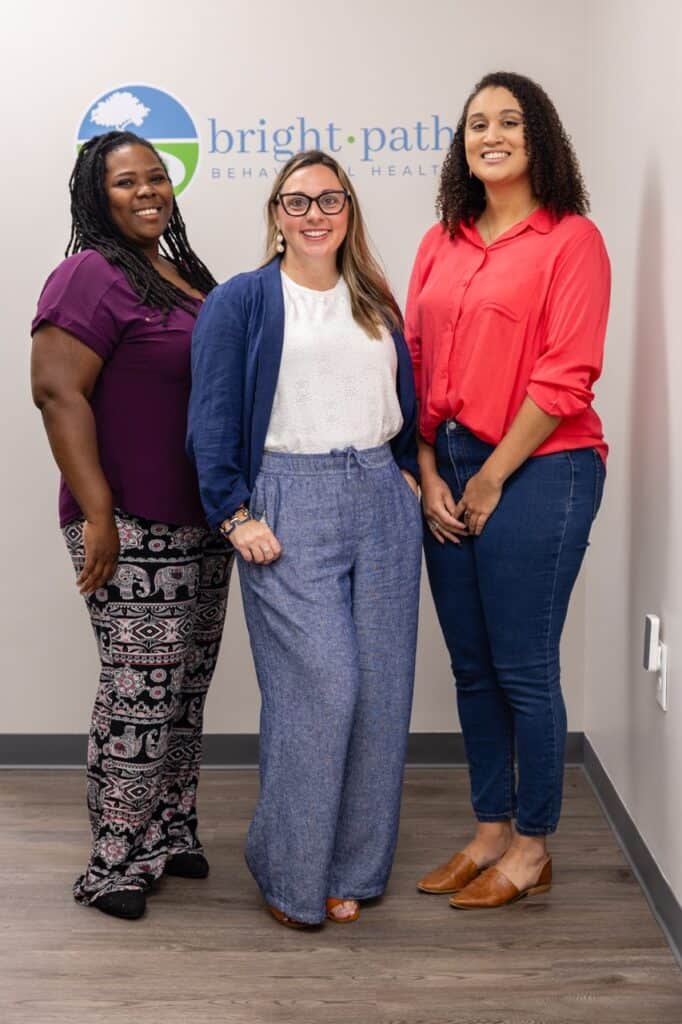Welcome to Bright Path Behavioral Health, where we understand the complex emotional journey associated with teen self-harm and self-injury. Our dedicated team offers a compassionate and holistic approach to treatment, recognizing that each individual’s path to recovery is unique. We are committed to providing supportive, personalized care, integrating the latest therapeutic techniques to not only treat self-harm behaviors but also address the underlying emotional and psychological factors. Here, you’ll find a safe space to heal, grow, and reclaim your well-being. Let us guide you on your journey towards lasting recovery and inner peace.
Why Choose Bright Path Behavioral Health for Self-Harm and Self-Injury Treatment?

At Bright Path Behavioral Health, we specialize in providing comprehensive care for individuals struggling with self-harm and self-injury. Our approach is grounded in empathy, expertise, and evidence-based practices, ensuring each client receives the highest quality of care tailored to their specific needs. We recognize that self-harm behaviors are often symptoms of deeper emotional and psychological challenges. Teens often struggle with anxiety, depression, and stress which can lead to self-harm behaviors. Our skilled team of professionals works collaboratively to address these underlying issues, offering a range of therapeutic interventions designed to promote healing, resilience, and long-term well-being. Our commitment to your journey is unwavering, as we strive to create a supportive and transformative healing environment. Choose Bright Path Behavioral Health for a path to recovery that respects your individuality and empowers your personal growth.
Our Approach to Harm and Self-Injury
Self-harm behaviors like cutting can be dangerous for teens and scary for their parents or loved ones. We’ve listed the supportive therapies we provide to treat self-injury in adolescents as outlined by the 2021 Mayo Clinic Study:
- Psychotherapy: Our psychotherapy treatments, such as Cognitive Behavioral Therapy (CBT) and Dialectical Behavior Therapy (DBT), target the underlying issues that trigger self-harm. These therapies are key in managing distress and improving emotional regulation.
- Mindfulness-Based Therapies: We incorporate mindfulness-based therapies to help patients cope with negative emotions. These therapies are effective in reducing anxiety and depression and enhancing general well-being.
- Medication Management: In cases where self-harm is linked to mental health conditions like depression or anxiety, we use medication as a supportive treatment. The Mayo Clinic’s findings emphasize the role of medication in managing these underlying conditions, thereby helping to reduce self-injurious behaviors.
- Day-Treatment Programs: For more severe cases of self-harm, our partial hospitalization care provides intensive treatment and a safe environment. This approach is recommended for crisis management and emphasizes the value of mental health day-treatment programs in teaching behavioral coping skills.
At Bright Path Behavioral Health, each treatment strategy is carefully selected and tailored to address the unique challenges and needs of our patients.
Lifestyle and Home Remedies for Self-Harm and Self-Injury
In addition to professional treatments, Bright Path Behavioral Health emphasizes the importance of lifestyle changes and support for parents and teens during and after treatment. The guidance we suggest and behaviors we support are listed below:
- Personal Treatment Plan Adherence: We encourage clients to consistently follow their treatment plans, including therapy sessions and prescribed medications.
- Trigger Identification and Management: Recognizing triggers for self-injury and having a plan for alternative coping strategies is crucial.
- Seeking Help and Support: Keeping in close contact with mental health providers and having a trusted support network are key elements in managing urges for self-harm.
- Healthy Lifestyle Practices: Incorporating physical activities, relaxation exercises, and a nutritious diet into daily routines can significantly impact behavior and recovery.
At Bright Path Behavioral Health, we understand the importance of combining professional treatment with these self-care strategies to create a comprehensive approach to healing from self-harm and self-injury.
What levels of care do you provide for teens with self-harm behaviors?
Bright Path Behavioral Health in North Carolina offers a comprehensive range of treatment options for teens who engage in self-harm behaviors. These levels of care include Partial Hospitalization Programs (PHP), Intensive Outpatient Programs (IOP), and Outpatient Treatment. Here’s a brief overview of each level of care:
- Partial Hospitalization Program (PHP):
- PHP is a structured program providing an intensive level of care, typically for those who require more support than traditional outpatient therapy but do not need 24-hour supervision.
- This program is ideal for teens transitioning from inpatient care or those who need significant therapeutic intervention without complete hospitalization.
- It usually includes several hours of therapy each day, for multiple days per week. This therapy might consist of individual counseling, group therapy, family therapy, and other therapeutic activities.
- The focus is on managing self-harm behaviors, understanding underlying issues, building coping strategies, and working towards improved mental health.
- Intensive Outpatient Program (IOP):
- IOP is a step down from PHP and is suitable for teens who need more support than what is offered in traditional outpatient settings but can manage with more independence than PHP.
- This program typically involves attending therapy sessions for a few hours, several days a week.
- IOP focuses on continued therapy and support, allowing teens to implement coping strategies in real-world settings while still receiving structured care.
- It’s designed to help teens manage their self-harm tendencies and continue their recovery journey while integrating more into their daily lives.
- Outpatient Treatment:
- Outpatient treatment is the least intensive level of care, involving regular therapy sessions, which may occur weekly or bi-weekly.
- This option is suitable for teens who have developed a degree of stability and control over their self-harm behaviors but still require ongoing support.
- Therapy might include individual counseling, group sessions, or family therapy, focusing on maintaining mental health, preventing relapse, and providing ongoing support.
In all these levels of care, Bright Path Behavioral Health employs a multidisciplinary team approach, including psychologists, psychiatrists, counselors, and other mental health professionals. The treatment is often tailored to meet the unique needs of each teen, incorporating evidence-based practices and therapies that might include Cognitive Behavioral Therapy (CBT), Dialectical Behavior Therapy (DBT), trauma-informed care, and other modalities suitable for addressing self-harm behaviors.
It’s important for families considering treatment for your teen to consult with Bright Path Behavioral Health directly to get detailed information about our programs, admission criteria, and how you can best meet the specific needs of your teen.
Get Help For Your Teen At The Bright Path Self-Injury Treatment Program In North Carolina

Teenagers, while resembling young adults, have distinct social, physical, and emotional needs, making specialized adolescent self-harm treatment crucial. At Bright Path Behavioral Health, we recognize these differences and offer tailored treatment programs focusing on the unique recovery needs of teenagers. Our center addresses co-occurring issues through dual diagnosis treatment, ensuring comprehensive care for those facing self-harm alongside substance abuse, depression, anxiety, or other mental health challenges. Our holistic approach includes family therapy, trauma therapy, and eating disorder treatment and support for depression, anxiety, and substance use disorder diagnosis. Embracing a life free from these challenges is possible with our dedicated support and peer guidance at Bright Path Behavioral Health. We serve teens with self-harm issues in Chapel Hill, Raleigh, Duram, and other areas of North Carolina. To learn more about our transformative care, contact us today.
What are the common triggers for self-harm and self-injury?
Common triggers include emotional distress, anxiety, depression, traumatic experiences, and feelings of low self-worth. Identifying personal triggers is a key step in treatment.
Can self-harm lead to more serious health issues?
Yes, repeated self-harm can lead to serious physical injuries, infections, and in severe cases, life-threatening situations. It’s also associated with underlying mental health conditions.
How effective is psychotherapy in treating self-harm?
Psychotherapy, particularly CBT and DBT, is highly effective in treating self-harm. It addresses underlying issues and teaches coping strategies for managing distress.
How Often Does The Program Meet?
Our Self Injury program for teens meets 5 days a week in our Partial Hospitalization program for 6-8 hours per day.




